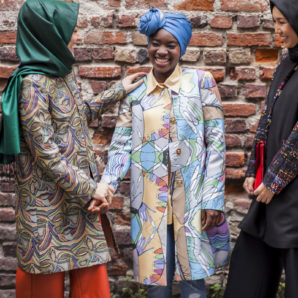
On the Theologico-Theatrical: Explaining the Convergence of Pentecostalism and Popular Culture in Nigeria
Assurances of salvation may no longer be enough for Nigerian Pentecostalism, where the propulsive energy of Fuji music and commercial imperatives contribute to entangling religion and entertainment.
Read More →
Assurances of salvation may no longer be enough for Nigerian Pentecostalism, where the propulsive energy of Fuji music and commercial imperatives contribute to entangling religion and entertainment.
Read More →
